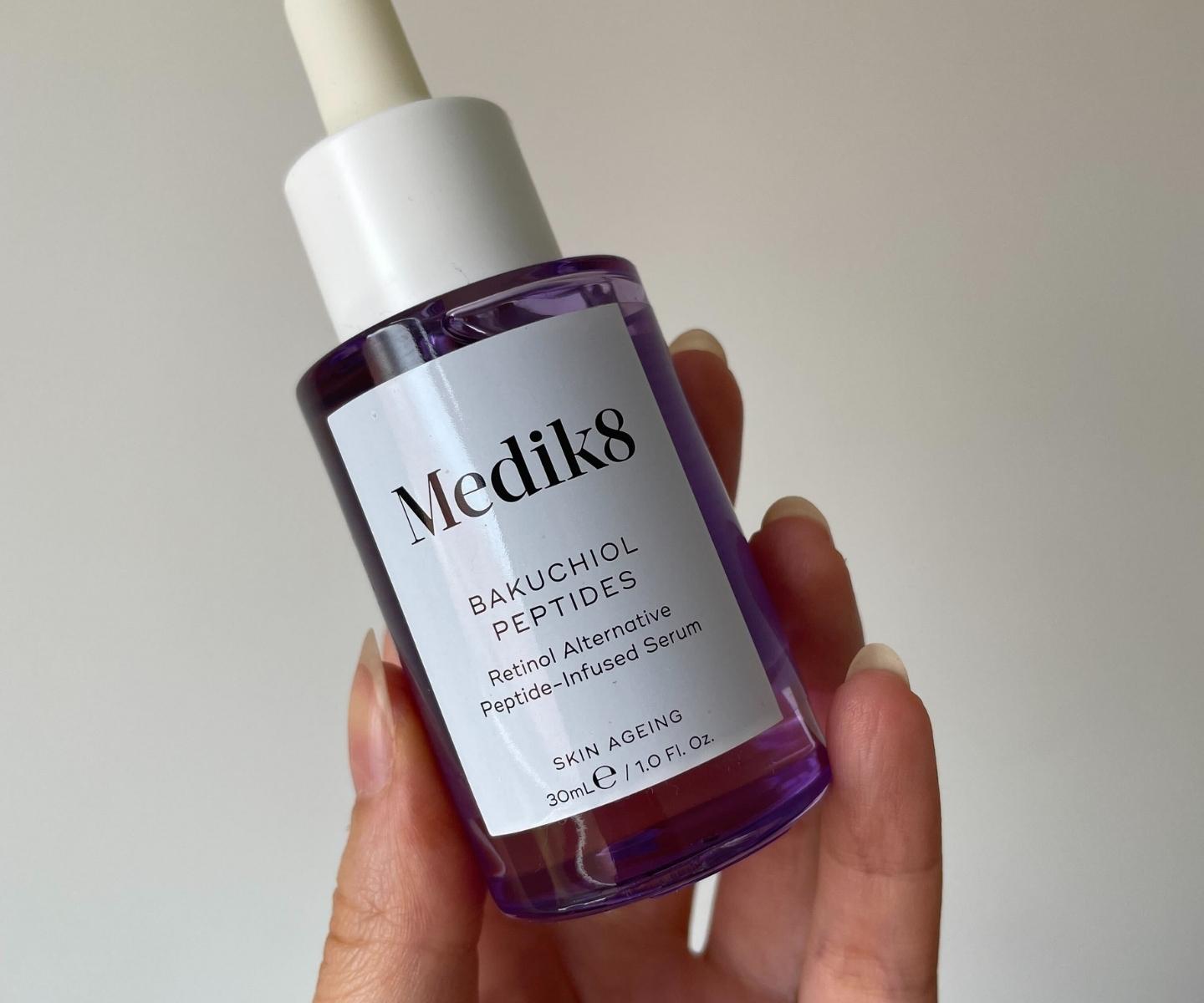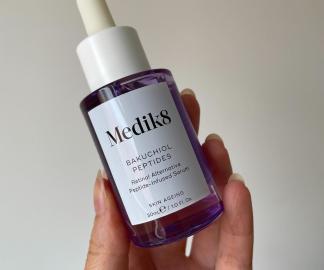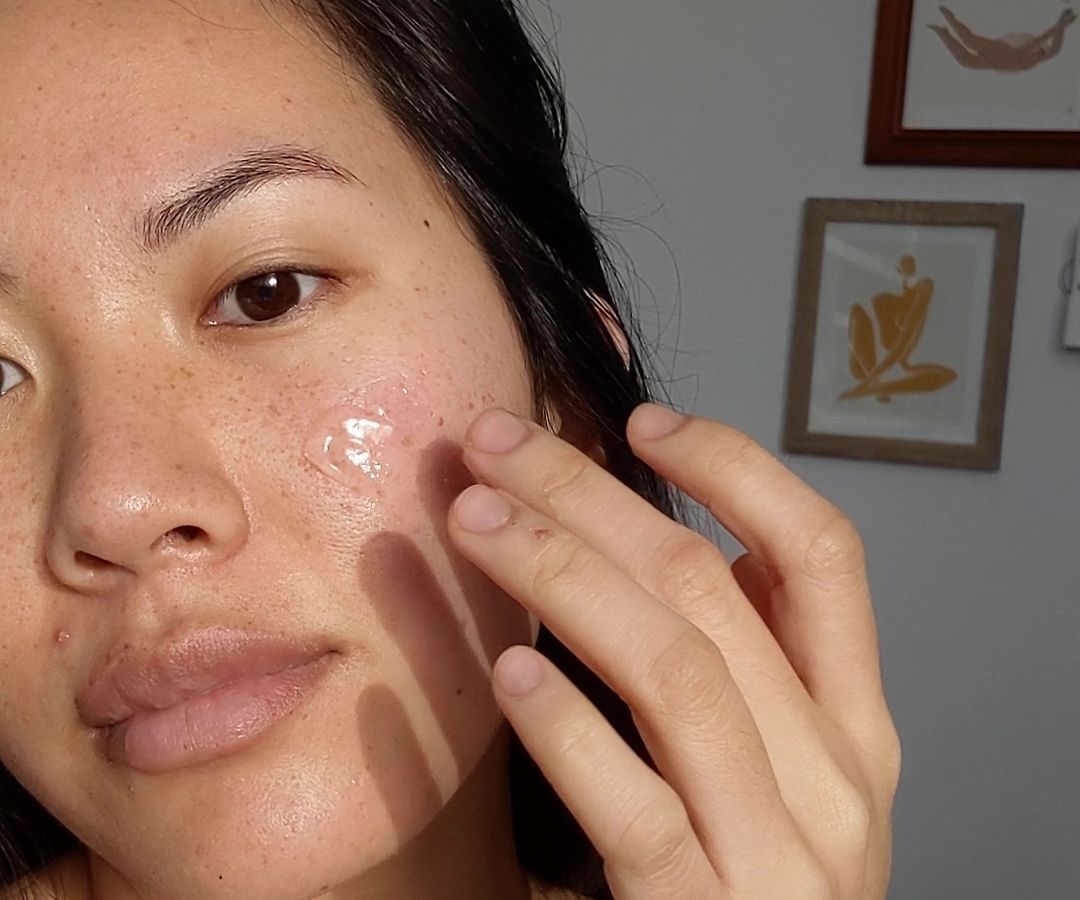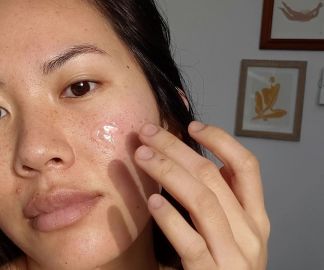While bakuchiol is great on its own, it’s even more effective when combined with ingredients like peptides.
Enter, this purple Medik8 Bakuchiol Peptdies serum.
Medik8 Bakuchiol Peptides 30ml contains 1.25 per cent pure bakuchiol (it’s the third ingredient listed, so you know it’s in a high concentration).
It also contains “an enhanced blend of brightening peptide precursors which help to visibly brighten the complexion with less pigmentation,” Isaacs explains.
Why are peptides so great? They’re the building blocks of proteins and our skin is already full of them, in our natural stores of collagen and elastin.
Of course, these disappear as we age, so applying peptides topically can help improve the skin’s natural strength and resilience.
“When applied to the skin, peptides can act as communicators, triggering a response in certain cells of the skin. They give your skin a specific instruction to do ‘something’, and that ‘something’ entirely depends on what order your amino acids are in. Every peptide has a unique superpower to target different skin concerns."
Medik8 Bakuchiol Reviews.


OK, but what's the Medik8 bakuchiol serum like?
Here are a few real reviews from Adore Beauty customers:
"I've been using this for 4 months now and can confidently say it has reduced the large pores on my cheeks, I'm honestly amazed at the results. Will definitely be purchasing this again when it runs out." - Jess.
"I only recently found out I was unable to use retinol while pregnant, so wanted something that would have similar effects. Love that this product is plant-based and it feels super light on my skin so far. I've only been using it for a very short amount of time, but I'm really happy and feel I might keep using it even after giving birth." - Amanda.
"While I can't say I've noticed a huge difference since using this, my skin does appear to be brighter in the mornings after I use this the night before. It also feels very hydrating too.
My skin can be quite sensitive and I've had bad reactions to quite a few products in the past, but I've had no problems with this one, so gentle!" - Chloe.
Is Bakuchiol Pregnancy Safe?
While retinol products are not recommended for women who are pregnant or breastfeeding, the jury is still out on whether bakuchiol is pregnancy-friendly or not.
There have been no studies done on pregnant women, so always consult your obstetrician or medical specialist before trying any new skincare products while pregnant.
Finally, Isaacs says there are “no ingredients to avoid” when using bakuchiol and no rules about when you should use Medik8’s Bakuchiol Peptides product.
But he does recommend using bakuchiol in conjunction with a vitamin C serum and your SPF in the morning for a complete skincare routine.
And that is everything you need to know about bakuchiol.







